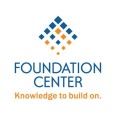New York has been abuzz this week with the reconvening of the United Nations General Assembly and the annual meeting of the Clinton Global Initiative, and in the streets, cafes and restaurants you can hear people from all over the world taking about ‘the MDGs’. Those who circulate in the acronym-laden universe of international development know that ‘MDGs’ are the Millennium Development Goals – the ambitious blueprint developed by the United Nations in the year 2000 to make serious progress on the pressing challenges of global poverty, health, education and environment.
By one measure, ‘MDGs’ is hardly a buzz phrase among America’s philanthropic foundations. I just did a quick keyword search of three years’ worth of 990-PF tax returns for close to 90,000 foundations and found just seven in which the term ‘millennium development goals’ appeared. Then I tried an ‘only foundations’ Google search on Glasspockets and got 3.65 million results!
But what people usually want to know about foundations is how much money they have spent on a cause or issue. It says a lot that only once in the years since the Millennium Development Goals were established has the Foundation Center been asked to map foundation funding to the eight goals. So this being a week where the MDGs are being discussed everywhere, we decided to pull some very quick data for 2011.
|
Goal |
Amount ($) |
No. of grants |
No. of fdns. |
| Eradicate extreme poverty |
770,761,183 |
1,663 |
318 |
| Achieve universal primary education |
42,756,909 |
294 |
80 |
| Promote gender equality |
223,768,315 |
312 |
56 |
| Reduce child mortality |
456,276,756 |
337 |
54 |
| Improve maternal health |
211,008,135 |
215 |
38 |
| Combat HIV/AIDS, malaria, other diseases |
1,572,823,543 |
426 |
48 |
| Ensure environmental sustainability |
534,927,086 |
1,747 |
224 |
| Develop partnership for global development |
278,124,929 |
363 |
109 |
These data come with important caveats. They are based on grants made in 2011 by a sample of more than 1,000 of the largest US foundations. Some of the grants are associated with multiple goals and have been counted more than once. But they also whet one’s appetite to know more. Beneath the numbers next to each of these goals there are layers of sub-categories that could be explored to understand better how philanthropy is helping to achieve, for example universal primary education. And the totals could be de-duped so that everything could be more easily added up.
Perhaps now is the time to go back and trace philanthropy’s contribution to the MDGs since their debut in 2000. That could give us a far better picture of the role our field has played to date – and can play in the future – as the world community engages in the process to define a revised set of goals for the post-2015 era.
In the meantime, we’re offering a small slice of data. In 2011, the year on which the above data is based, America’s foundations gave a total of $49 billion. Did they spend too much, or too little, to further the MDGs? We’d like to hear what you think.
Bradford Smith is president of the Foundation Center. This article was first published on the Foundation Center’s Philantopic blog








Comments (0)